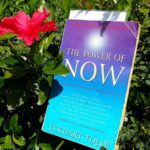Life is a dance, not a fight.
It’s been two and a half years since I thought about killing myself. That’s up there as one of my personal records I’m most proud of, next to that time I won my Kindergarten classes’ art fair.I wouldn’t be the person I am today, had I not gone through years of battling depression and recovering from two eating disorders. It woke me up and now, I can’t go back to seeing the world from a sleeping state. Even my sense of humor darkened in a way that I can make things awkward at a party at the drop of a hat.
I secretly love that.
But one of the most twisted silver-linings of believing my brain was broken and I’d royally screwed up my one chance at living is that I learned the truth about happiness. Not the mundane garbage splattered across motivational Instagram posts and “Live Laugh Love” signs.
I’m talking about the lessons you can either learn by hitting rock bottom, making the near-impossible choice to continue existing, and clawing your way out of the trenches or reading from someone who’s been there.
If you chose the latter, this article is for you. It’s seven lessons that I learned by going through my darkest times; the reason I wouldn’t change my past, even if I had the chance.
The belief that despair would be apart of me for the rest of my life was by far the hardest part of my worst bouts of depression. I figured I was condemned to a life of toggling between numbness and hopelessness.
But, each time I got through those bouts of depression, I proved to myself that I am not despair and hopeless. They were simply transients residing in me for a moment’s time.
This lesson hit me so hard, that I permanently marked it on my body as my first and only tattoo. Three black dots (an ellipsis) are marked on my right ring finger as a reminder that when I feel overwhelmed by my feelings, life will continue on, like a thought yet to be finished.
Part of what perpetuated my eating disorder for so many years was a need for control. Everything felt unstable about my life: I left a job because it was clear they didn’t need me. I failed at starting a new career as a coder. Then I was let go from a technical recruiting job.
Not to mention the dumpster fire that was my love life. My heart was like a revolving door of people who got a glimpse of the disheveled decor inside and decided to keep pushing the door around so the man behind him could have his chance.
The one thing I did have control over was food, though. I’ve been on nearly every diet that exists. I can tell you the calorie count of just about any food, give or take 20 calories. My esophagus is like that of a middle-aged white man who eats donuts for breakfast every morning.
And even though I fought for control, life still had its curveballs. Because, no matter what anyone does to set themselves up to thrive, things happen. And the key to making it through life’s obstacles isn’t by fighting every possible chance of sadness that comes your way; it’s about learning to dance.
And by dance I mean, having the tools to help yourself on the days you’re down. Building thriving relationships as your support system. Accepting that it’s OK to not feel OK.
At the time of my 2019 bought of depression, I was seeing a therapist at my city’s local community center. I originally went to him to find out why I dated such crappy men but, like many things in life, our sessions quickly turned into uncovering why I was so unhappy with myself.
My therapist gave me tools, activities, and exercises. He recommended I start taking walks and reading certain books. And though all of those things combined created the ladder I needed to climb my way out of the sadness, I still needed the time to build the ladder.
You can give someone the tools to heal, but all that does is start the healing. The process of healing will take time, regardless of how much you try to rush it. But in that is a bit of hope, too; the assurance in knowing something as simple as time can drastically change the course of your life.
It’s the exact opposite mindset of what I had in 2015 when I started going to eating disorder rehab. I’d scroll on Instagram and see people who were unencumbered by their thoughts around food. They ate without hesitation; something I hadn’t done in years.
I spent about 80% of my waking time thinking about food. My days were consumed by counting calories in my head, agonizing over what I ate the day before and would eat the day after, and avoiding seeing myself on any reflective surface. It was an exhausting existence, and the gap between me and the people I saw on Instagram seemed endless.
But it wasn’t setting my sights on how far I had to go to shorten that gap that helped me recover from my eating disorder. It was small changes I made that did the trick.
Focusing on how far you have to go can feel disheartening. But if you can commit to taking tiny steps forward, one day you’ll look back and see how far you’ve come.
My fate was always in my own hands.
While support and therapy are essential to people suffering from diseases like depression, eating disorders, and anxiety, ultimately, the change has to come from them. I realize now the power in asking for help, but I’m in charge of my own happiness.
And that realization has carried with me throughout my life. I need to check-in with myself to make sure I’m not slipping back into my disordered eating way. I have to monitor whether I’m feeling like myself and, if not, I need to be the one to do something about it.
Because, if I wait around for someone else to notice, it’ll be too late. I’ll be back at square one. But that’s OK. I’m always going to be the person who can take care of and prioritize my needs best.
Society puts so much pressure on people being happy: Choose a job that brings you joy but also a partner that does the same. Workout because your cortisol levels will decrease and have plenty of sex so your serotonin increases. Have hobbies you love and friends you love more. Because all of this combined will ensure your happiness.
Barf.
When you focus your attention too much on anything, you’re bound to smother it. Happiness shouldn’t be a part-time job but, rather, a byproduct of just having fun with life.
Shifting my focus away from trying to be happy to simply being happy was a game-changer. It led to unexpected happiness because, really, how can anyone know what would make them happy until they try?As I said, I don’t regret spending years of my life in the grips of two eating disorders or blanketed by the despair of depression. They’re both what shaped me into the person I am today. Hell, without them, I wouldn’t be a writer and you sure as hell wouldn’t be reading these words right now.
So take these lessons on happiness and apply them to your life. Or don’t. Whatever you choose will end up being your journey; something many of us need to go through to see the light.
![]()


























